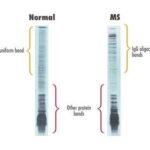Human Papillomavirus (HPV) is a common virus, and the HPV vaccine is a powerful tool for prevention. Many people wonder about the vaccine’s effectiveness and if it’s still beneficial after an HPV diagnosis. This article will address the key question: can you get the HPV vaccine after diagnosis? We will explore the benefits of HPV vaccination even after you have been diagnosed with HPV, helping you make informed decisions about your health.
While the HPV vaccine is most effective when administered before any exposure to the virus, it can still offer significant protection even if you have already been diagnosed with HPV. It’s crucial to understand that HPV is not a single virus, but a group of over 200 related viruses. The HPV vaccine does not treat existing HPV infections, but it can protect against other types of HPV that you may not have been exposed to yet.
Understanding HPV and the Vaccine’s Role
HPV is primarily transmitted through sexual contact and is so common that most sexually active people will get HPV at some point in their lives. Many HPV infections clear up on their own without causing any health problems. However, some types of HPV can persist and lead to serious health issues, including:
- Cancers: Cervical, vaginal, vulvar, penile, anal, and oropharyngeal cancers (cancers of the back of the throat, including the base of the tongue and tonsils).
- Genital Warts: These are a visible and often uncomfortable symptom of certain HPV types.
The HPV vaccine works by stimulating your immune system to produce antibodies that protect against specific HPV types. The most current HPV vaccine, Gardasil 9®, protects against nine HPV types that cause the majority of HPV-related cancers and genital warts.
HPV Vaccine After HPV Diagnosis: Is It Still Beneficial?
The answer is generally yes. Even if you have been diagnosed with HPV, getting the HPV vaccine can still be beneficial. Here’s why:
- Protection Against Other HPV Types: It’s highly unlikely that you are infected with all nine HPV types covered by Gardasil 9®. If you have an existing HPV infection, the vaccine can protect you from getting infected with other HPV types included in the vaccine that you haven’t already encountered.
- Preventing Reinfection with Different Types: Having an HPV infection doesn’t provide immunity against other HPV types. The vaccine can help prevent future infections from the HPV types it covers, reducing your overall risk of HPV-related diseases.
- No Treatment for Existing Infection: It’s important to reiterate that the HPV vaccine is preventative, not a treatment. It will not clear up an existing HPV infection. If you already have HPV, the vaccine will not eliminate it. However, it can prevent new infections from different HPV types.
“Typically, people with HPV have not been infected with all of the types contained in the vaccine, so the vaccine could protect them from types to which they have not been exposed previously. However, the vaccine will not help treat or protect against types of HPV to which the person has already been exposed.”
This statement from the original article clearly highlights the benefit of vaccination even after an HPV diagnosis.
Who Should Consider HPV Vaccination After Diagnosis?
The HPV vaccine is licensed for use in individuals up to age 45. Vaccination is generally recommended for:
- Individuals up to age 26: Routine vaccination is recommended for adolescents and young adults up to age 26 who were not adequately vaccinated previously.
- Adults aged 27 through 45 years: For older adults, the decision to vaccinate is made on an individual basis, in consultation with a healthcare provider. While new HPV infections are less common in this age group, vaccination can still be beneficial for some individuals who are at risk of new HPV infections and haven’t been exposed to all vaccine types.
- Sexually Active Individuals: Even if you are already sexually active, you can still benefit from the HPV vaccine as you may not have been exposed to all the HPV types covered by the vaccine.
- Individuals with a History of HPV Infection: A prior HPV infection does not preclude you from benefiting from the vaccine, as it can protect against other HPV types.
Addressing Common Concerns About Post-Diagnosis Vaccination
- Will the vaccine clear my existing HPV infection? No, the HPV vaccine is not a treatment for existing HPV infections. It is designed to prevent new infections.
- Is the vaccine safe if I already have HPV? Yes, the HPV vaccine is safe for individuals who already have HPV. There is no evidence to suggest that the vaccine is harmful or less effective in people with pre-existing HPV infections.
- If I have one type of HPV, will the vaccine protect me from that specific type? No, the vaccine is preventative. It works best before exposure. If you are already infected with a specific HPV type, the vaccine will not treat that existing infection. However, it will still protect you from other types included in the vaccine that you are not currently infected with.
Conclusion: Talk to Your Healthcare Provider About HPV Vaccination
While the HPV vaccine is most effective before sexual debut, it can still provide valuable protection even after an HPV diagnosis. It can protect against HPV types you haven’t yet been exposed to, reducing your risk of developing HPV-related cancers and other diseases.
If you are wondering “can you get the HPV vaccine after diagnosis?”, the answer is a resounding yes, in most cases, it’s still a worthwhile consideration. The best course of action is to discuss your individual situation with your healthcare provider. They can assess your risk factors, discuss the potential benefits of vaccination, and help you make an informed decision about whether HPV vaccination is right for you, even after an HPV diagnosis.
